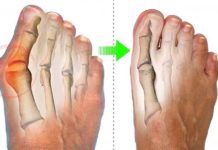Prostate cancer is a serious disease in which the cells of this tissue undergo an alteration. The first symptoms of prostate cancer are usually related to problems in the lower region of the body, including difficulty urinating and ejaculating.
As a general rule, the prostate, a gland that only men possess, secretes part of the fluid that makes up the semen to the urethra. It is located below the bladder and in front of the rectum, the final part of the large intestine.
Thus, the cells begin to reproduce uncontrollably and can form small tumors or bulges as a result of that abnormal growth. This disease comes from a modified change in the genetic material or DNA of these microorganisms.
Although there is no specific cause for this disorder, several risk factors have been discovered that increase the risk of suffering the disorder. For example, exposure to radioactive materials or consumption of toxic substances (such as tobacco smoke). The physical condition of the patient also influences.
Also, this gland increases in size as the patient ages progressively. As this region performs a large number of cell divisions it is more likely to develop genetic mutations. This type of cancer is called adenocarcinoma.
When the patient shows any of the following symptoms, it is important to see the doctor since an early diagnosis can improve the possibilities of treatment.
Normally certain medical tests are performed in conjunction with the physical examination and family history check. For example, prostate biopsy and blood and urine tests may be performed.
Procedures are also performed such as radiography, gammagraphy , Magnetic Resonance Imaging (MRI), Computed Tomography (TAC) of the area to locate tumors in the affected area.
First symptoms of prostate cancer














